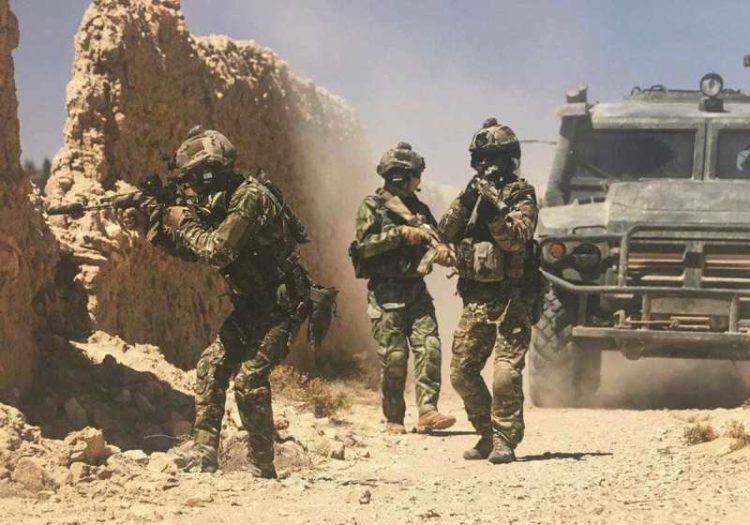Last Friday, in an exclusive story, the New York Times reported that a Russian military intelligence unit had been offering bounties to militias linked to the Taliban for the killing of American and Coalition troops in Afghanistan. They did so in an attempt to derail the peace talks between the U.S and the Taliban.
At least since January, intelligence officials and Special Operations troops had informed their superiors about a potential link between Taliban attacks against U.S. and Coalition targets and Russia. According to U.S. intelligence officials cited in the report, the Russian unit is also behind attempts to destabilize Western values and institutions through hybrid warfare means.
The White House was aware of the above since at least March, according to the report. A series of measures had been discussed, ranging from diplomatic warnings to sanctions that came to nothing.
President Trump, however, denied any knowledge of the scheme. “Nobody briefed or told me, VP Pence, or Chief of Staff Mark Meadows about the so-called attacks on our troops in Afghanistan by Russians,” tweeted the President.
Vice President Pence said that the intelligence community didn’t notify him because they didn’t think the reports were credible.
Meanwhile, the National Security Council is trying to determine the veracity of the reports.
Representative Michael McCaul (Republican), the head of the House Committee on Foreign Affairs, said in a series of Tweets that “I have seen the press reports that a Russian military intelligence unit offered Afghan militants bounties to kill American troops. If true, it would only deepen my grave concerns about the Putin regime’s malicious behavior globally. From invading Ukraine, propping up dictators around the world and interfering in U.S. and European elections, the Putin regime has shown time and again it cannot be trusted and is not our friend.”
In response to the report, Zabihullah Mujahid, a Taliban spokesman, said that “These kinds of deals with the Russian intelligence agency are baseless — our target killings and assassinations were ongoing in years before, and we did it on our own resources. He added that since the peace deal was signed, the Taliban have been careful not to target American and Coalition forces.
But the Afghan security forces are still fair game. Last week, the Afghan government suffered its worst losses since the war began 19 years ago, losing more than 800 troops that were killed or wounded in a series of attacks.
“I immediately reached out to the Administration,” added Rep. McCaul, “and will be talking with them in the very near future. If accurate, the Administration must take swift and serious action to hold the Putin regime accountable.”
To be sure, Russia’s desire to kill and maim American and Coalition troops shouldn’t come as a surprise nor be a cause of alarm. The Russian government is an adversary of the West. This she has proven time and again during several occasions. For example, Russia has repeatedly targeted democratic institutions and processes in the U.S. and Europe (remember the independence referenda in Scotland and Catalonia?). She has, moreover, attempted to destabilize Western societies by inciting and promoting racial and religious violence. Russia’s decision to offer the bounties is the tactical outcome of a strategic choice. A failed peace agreement in Afghanistan is bound to upset the American political scene and the country’s regional goals.
Already have an account? Sign In
Two ways to continue to read this article.
Subscribe
$1.99
every 4 weeks
- Unlimited access to all articles
- Support independent journalism
- Ad-free reading experience
Subscribe Now
Recurring Monthly. Cancel Anytime.











COMMENTS